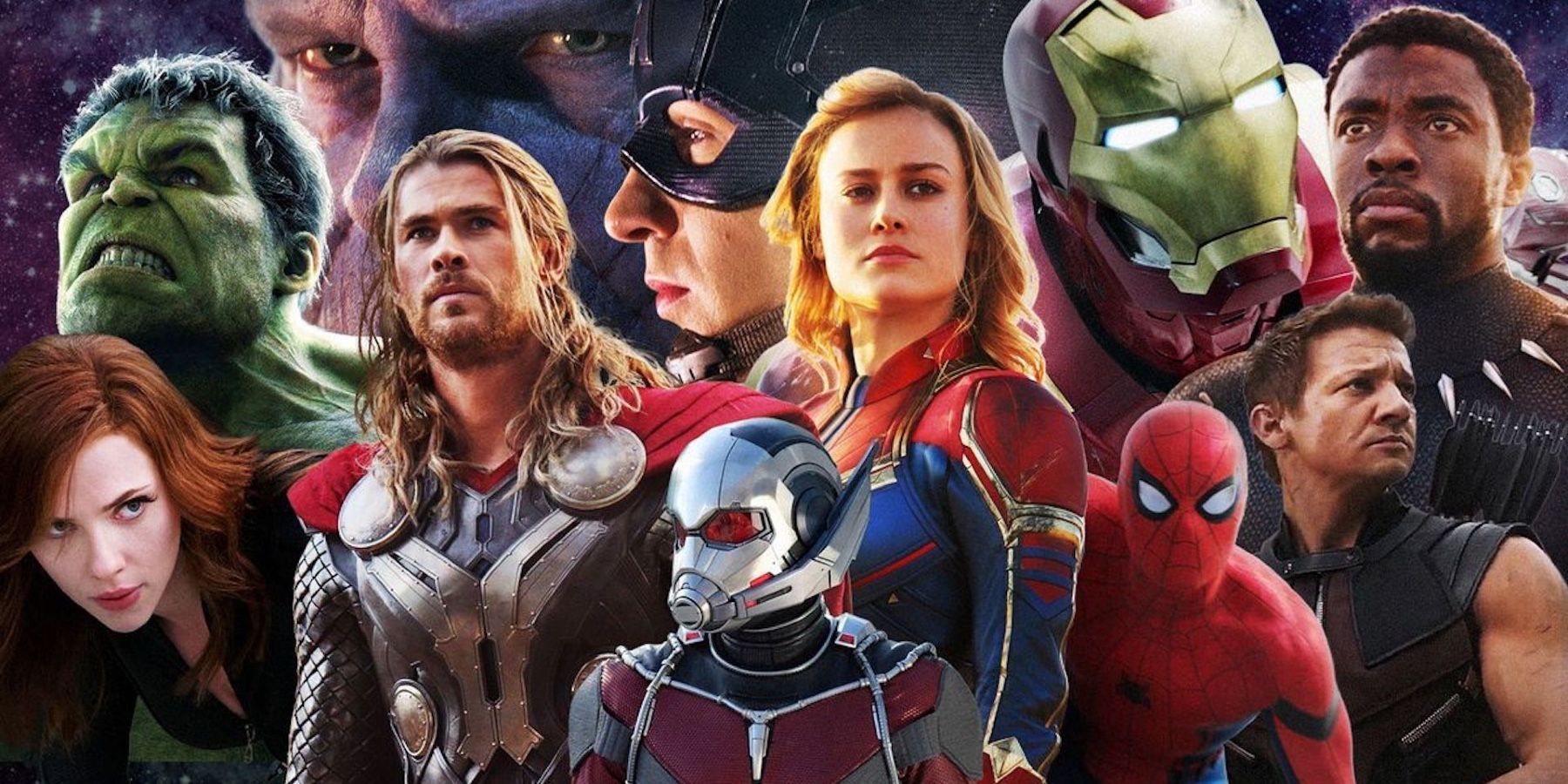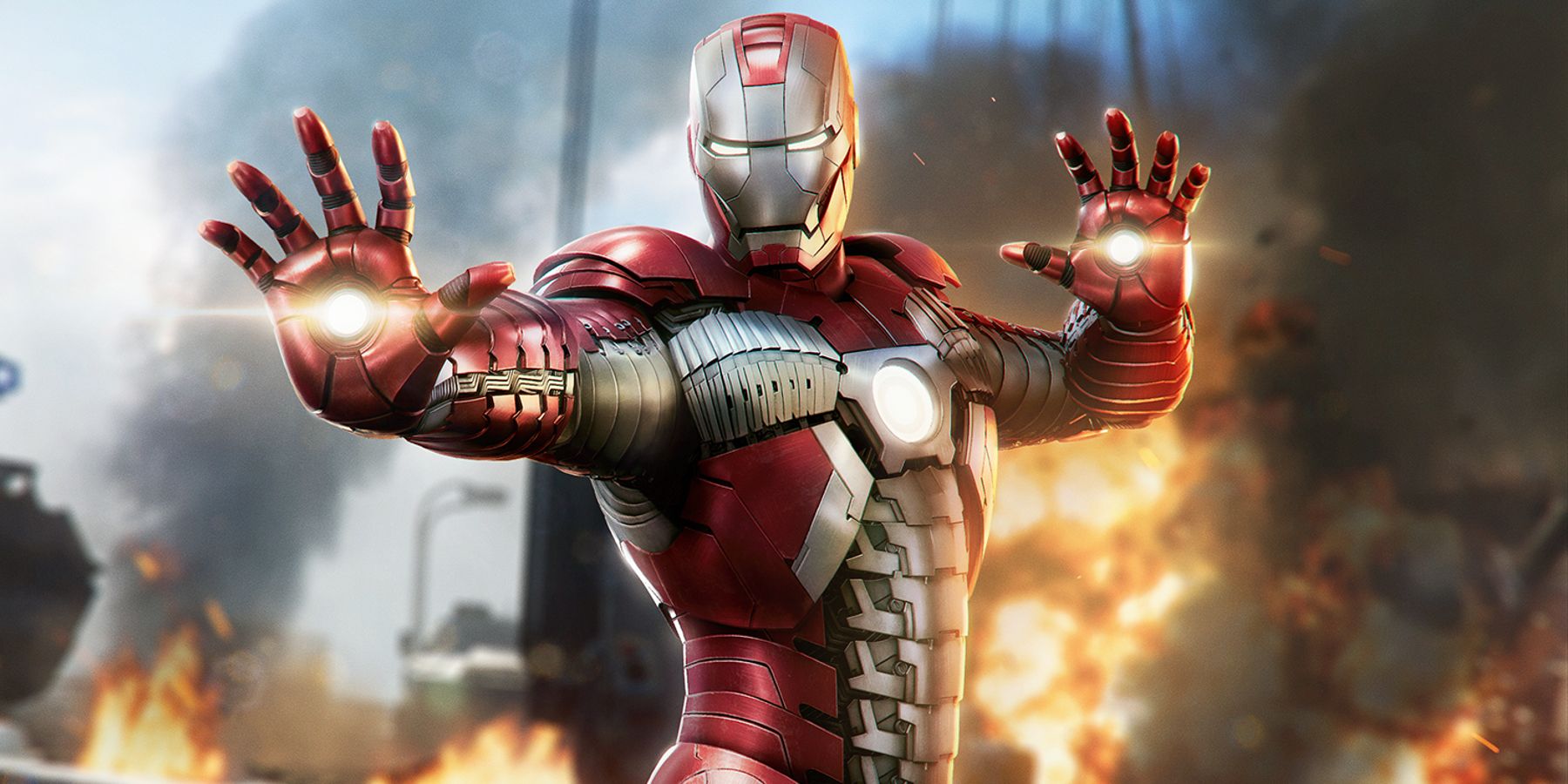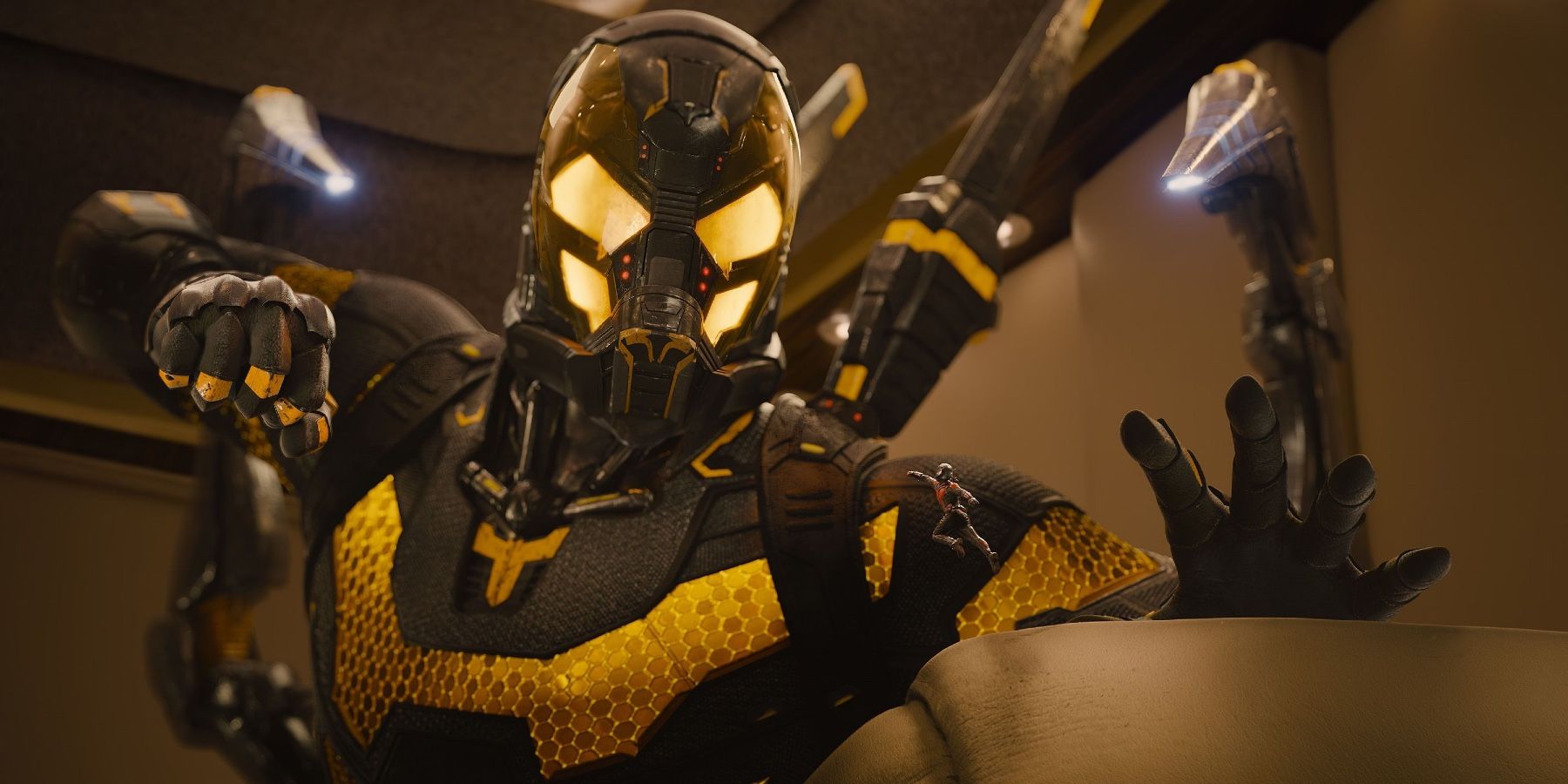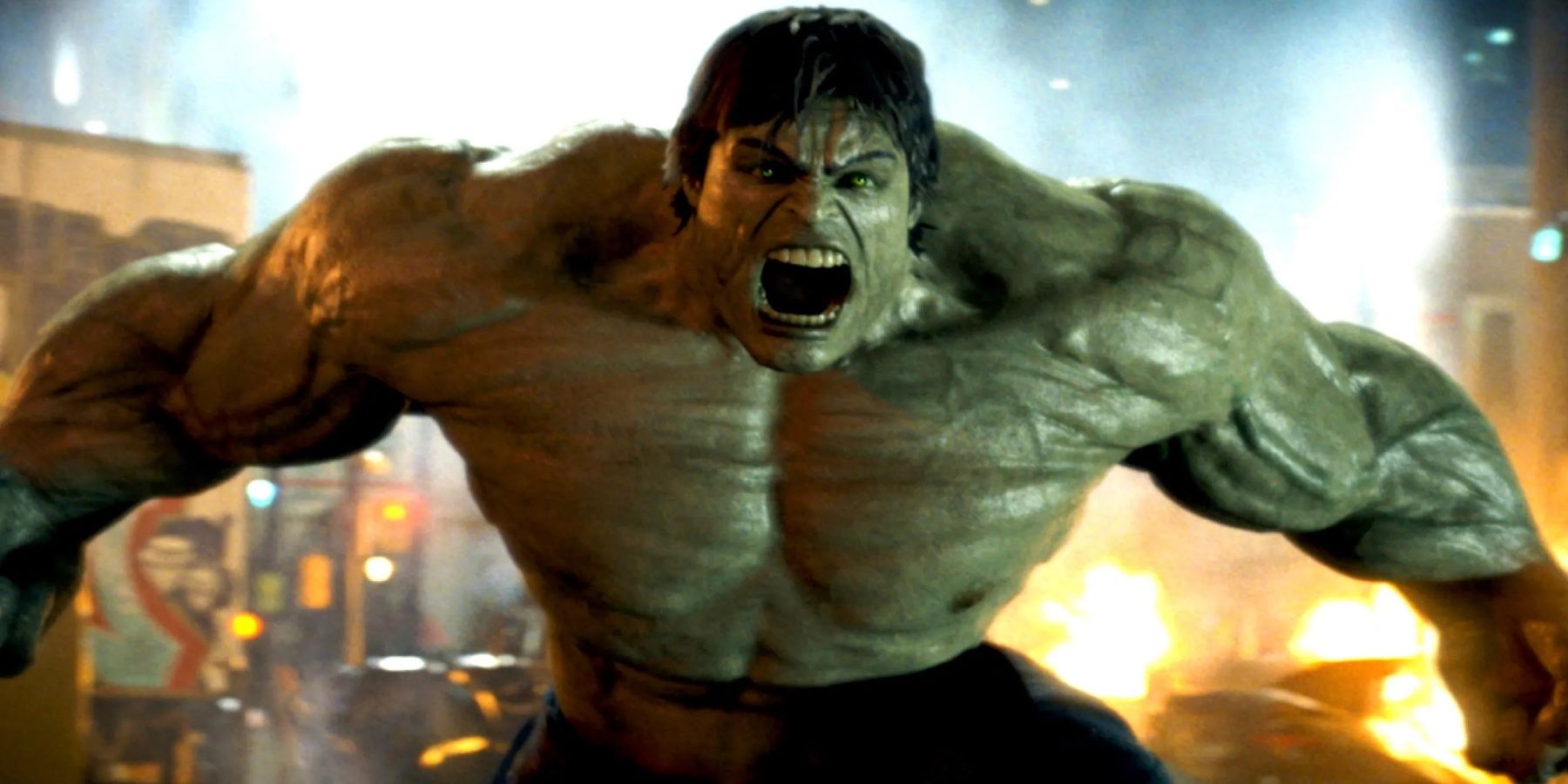There have been quite a few MCU movies that aren’t necessarily required viewing in order to understand their over-arching plots, such as Iron Man 2, Iron Man 3, Ant-Man, Black Widow, Thor: The Dark World, and The Incredible Hulk. While the most pivotal MCU films contain bigger villains (like Thanos and Loki) and plots revolving around the infinity stones, the least essential MCU films are more personal stories involving the main heroes, and how they have to resolve conflicts that question their identity. These features may be low key compared to the major threats surrounding the MCU, but that doesn't mean they're entirely not essential since each film helps build up characters and their respective journeys.
The least essential MCU features include the Iron Man sequels, which didn't surpass the originality or greatness of the first film, and the villains weren't as intriguing as Jeff Bridges' Obadiah Stane. Ant-Man is a much more light-hearted superhero film that successfully combines comedy and drama, along with inventive fight sequences. Thor: The Dark World is a sequel that had a tough act to follow after the introduction of Thor and Loki in the funny and dramatically exciting first film, but managed to continue Thor's journey as a more humble hero. Before Mark Ruffalo smashed his way into the role of Bruce Banner/Hulk in the MCU, Edward Norton did an admirable job with the role (only once) by portraying the nerdy scientist who tries to cure himself and fight off the military (which was already familiar due to the 2003 Hulk film directed by Ang Lee).
The problem with sequels, reboots, and solo films, especially involving superheroes, is trying to come up with fresh and better material, but in many cases, they are retreads that suffer in comparison to the original films or their influences. Iron Man is innovative for introducing Robert Downey, Jr.'s charismatically talented and egotistical Tony Stark, and is portrayed as a billionaire and playboy who initially only cares about his work at Stark Industries, but when he sees that enemy forces are using his weapons to wage war on the world, Stark becomes more adamant about fighting for world peace. Iron Man 2 isn't as popular as its predecessor because it showed Stark once again fighting similar villains who are power-hungry to use his technology and make it better for themselves to cause mass destruction.
However, what makes Iron Man 2 special is questioning how Tony Stark wants to preserve his legacy for world peace, and to keep his Iron Man suits and his company under control. This Iron Man film has a cool villain in Mickey Rourke's Whiplash, Don Cheadle's Rhodey is more effective here as Stark's partner, and Scarlett Johannson's Black Widow makes her first explosive appearance in the MCU. Iron Man 3 continues to test Stark and his ability to be a superhero, with a menacing villain, Aldrich Killian (Guy Pearce), who seeks vengeance against Stark for undermining his skills. The third film also has an interesting twist with The Mandarin, Pepper Potts is more involved in the action, and, like the first film, Stark has moments of vulnerabilty in which he's forced to use limited resources to take down enemies.
Ant-Man star Paul Rudd, an actor mostly known for his comedic work, proves he can portray a funny criminal, a loving father, and a cool superhero who can fight small. Despite being a crook who desperately tries to spend more time with his child, Scott Lang is a man simply seeking redemption for his past crimes, and tries to prove to his family that he is worthy of doing more to become a better person. The fight sequences are slightly different from other Marvel superhero films since this feature involves a hero who has a suit that can shrink and then go back to normal size, as well as lead an army of ants and sneakily take down regular-sized bad guys. There's also an innovative climactic battle with the main villain Darron Cross/Yellowjacket, who has a suit similar to Ant-Man's but more enhanced.
Thor: The Dark World isn't as exciting as the first film, which introduced the God of Thunder and the God of Mischief, as well as the visually captivating world of Asgard. The sequel continues to explore the complicated relationship between Thor and Loki, and Thor's rekindled romance with astrophysicist Jane Foster after their separation at the end of the original film. Jane's colleagues, Erik Selvig and Darcy Lewis, also provide plenty of comic relief. The villains, Malekith and the Dark Elves, are menacing and powerful, but lack depth compared to Loki's villainous moves in the first film, but this sequel presents Thor as a more humble hero who thinks more about his actions rather than rage war all the time.
The Incredible Hulk continues Bruce Banner's journey as a conflicted scientist who tries to find a cure for his gamma radiation. The weakness of this picture is that it replicates part of what was already shown in Ang Lee's Hulk film, such as the U.S. military chasing Banner, and Bruce's complex romance with Betty Ross. However, the film does find a balance between emotional drama and humor, and contains some intense action sequences, including the climactic battle between Hulk and Abomination. It would have been interesting to see Edward Norton's Bruce Banner/Hulk in future MCU and Avengers films, but his presence is powerful in this feature, and lays the groundwork for Mark Ruffalo's iteration of the character by foreshaowing the struggles he will go through against future enemy threats.
Black Widow is another MCU film that's considered less essential, and many argue that a solo picture with Natsha Romanoff should have been done years ago. Despite this, Black Widow is a personal and emotionally charged action picture that efficiently explores Natasha's traumatizing past, as well as her current fight with the old enemy who trained her (General Dreykov). Her "family" of assassins (Yelena, Melina, and Red Guardian) are also very funny, and are professionals when it comes to the hard-hitting action. The message of the film is very poignant in depicting that becoming a killer assassin is wrong, and that young women can be tough and independent without being forced into a brutal and depressing lifestyle.
These Marvel features may be the least essential in the MCU, but they convey powerful stories involving heroes who go through personal conflict, and seek redemption by tackling villains who want to ruin their careers and reputations. These films also introduce some new characters who become pivotal in future MCU features. Thor and Ant-Man currently have sequels in development, the future for Mark Ruffalo's Hulk is uncertain but can likely return, and while Tony Stark/Iron Man and Natasha Romanoff/Black Widow's respective journeys may be over, their legacies will live on in the people they influenced, and can impact certain superheroes in Phase Four of the MCU.




